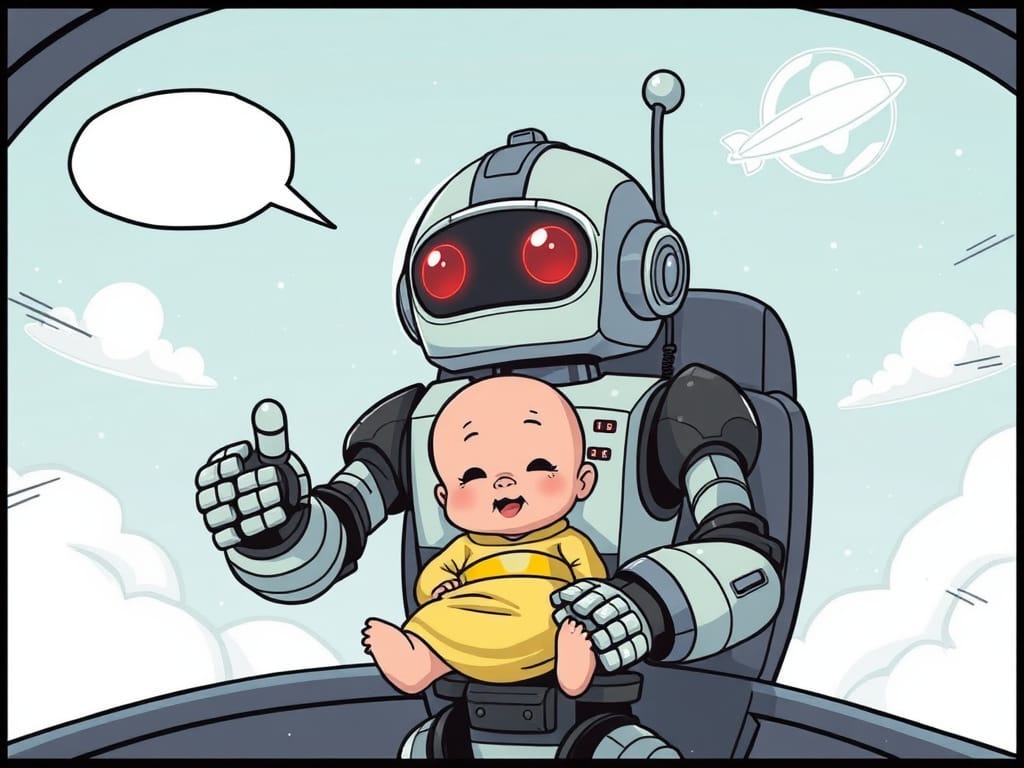Better than VMs & Co-Pilots
Staying in time of technology, infused by sociotechnological and personal thoughts 📩 a Newsletter for everyone who ❤️ tech and personal development
Are Virtual Machines finally dead yet?
The whole license changes around VMware and the insanely increased costs are like a horrible accident. You know you shouldn't look at it, but you also can't look away. tl;dr After the acquisition of VMware by Broadcom, the customers experienced a drastic price change, making many challenging their position. On the other hand, multiple corporations report that they can't just use something different as they are too dependent on the technology stack. Well, if you just had to invest five more minutes to be a little bit more cloud native, I'm not saying that it is the solution for everything, but at least it decreases the number of chains you are putting on your IT.
We hopefully can move on now to overcome VMs and focus on more lightweight solutions. Better for your pocket money and for the planet. But it doesn't look like people think at least one step ahead - the common discussion out there in the WWW is which hypervisor to choose instead of thinking about how to build and ship your software so that you can use whatever you want...
Thinking of the 1:1 replacements:
I see here a few chances for cloud providers and their rapid adoption. If AWS, Azure, and Co. are too expansive, you should test Scaleway, OVH, and DigitalOcean! (no advertisement)
The FOSSlers, on the other hand, are screaming PROXMOX, but I think that is not an option except if you want to double or triple your current infrastructure team.
OpenShift or OKD would be more elegant than that. Here, you would get a full powerhouse for your transition. Run VMs, run containers, and host a Serverless platform on-prem or in the cloud. You see where this is going.
Whatever option you choose, first, you should invest in the way your teams develop, build, and ship software. As an example you could use Packer to create from the same software VM images or container images. With the focus on the pipeline you are going to be prepared for future changes and enable your organization to take on any challenges without having such minor blockers.
Co-Pilots and why you have to stay the captain
The age of co-pilots is here. But maybe we are just at the level of kinder garden. As BusinessInsider (yeah, I know BI...) reported about a Pharma company throwing out Microsoft Co-Pilot because it is only able to create PowerPoint slides, which also could be from a child. How much meat we have on this stake is difficult to say, but to find relevant success stories is also almost impossible. I think we should turn down the heat of the AI flame to not burn all the fuel at once and see the whole industry going down because, surprisingly, the technology isn't ready yet.
What most people forget is that we are in the middle of a huge, big-fat hype. And the wave we are riding is still strong, constantly pushed by new companies, new products, and billions of dollars invested by people who actually play Monopoly.
Obviously, technology will need some more years to become really helpful. The results of the report from BCG and Harvard are good. "Completed 12% more tasks; completed 25% more quickly; increased performance by 17% with AI".
Looking into most of the tasks like creating lists or defining steps for a process I can say, not every company is just working on power point slides, some have real work to do OR if you use dead simple tasks, you are not going to replace your experts, but your trainees who should become experts in some years.
In the end we have to stay the captain, define clear ways to work with AI support but don't let young people lose track because we can now abstract away basic tasks. And, we will lack creativity. Finding creative and revolutionizing solutions is what brings a company forward. Use the tool but don’t let the tool use you as fool.
our young talents getting carried by co-pilot
Learning of the Week
In the last couple of months, I have spent my time writing a book together with my two co-authors. It is an exciting project and something I have been looking for for many years. It will be released in the next months, the heavy writing part is already done and the final editing and technical review is fully in progress. Our book "Platform Engineering for Architects" tries to balance between the technical standpoint and a more methodological, timeless approach for designing platforms and internal development platforms. I will keep you posted.
However, what I learned this week is about creativity. While writing the book for the first chapters, I felt unstoppable. My thoughts shaped like magic, and the more I wrote, the more thoughts and ideas came up. But also, the more I wrote, the longer I needed to put my thoughts into words. And towards the end of the book, it felt like ages passed by until one page was done. So I did my research on it what others do when they feel stuck with their creativity, and I found many saying they are losing their creativity. But I think that is wrong. The motivation and ideas are still there, they just felt tethered to the ground. Creativity doesn't vanish, she just get to many dependencies, to many other ideas that are connected which keep holding it down. I continuously had questions in my head like - didn't we write about this before? Haven't we taken an opposite statement in chapter x? Is it still the right topic?
So, either one of two things helped me a lot:
Let it flow: I completly ignored the questions I had and just let the words flowing out. Unbiased it became more what I wanted to say then continuously double check it while writing. A similar effect is given when you do a brainstorming session without rules and sharing thoughts and then consolidate it afterwards. But it is very difficult to ignore those inner voices that continously wants to redirect you.
Build on ideas of others: Sometimes it just wasn't possible to ignore given content and later clear out your writing and making it fit together. So you have to understand it, study it, and then build on it. Building on someone else thoughts triggers your brain to think more deeply about it and provide actually nice new ways of thinking.
Both don't seem to be crazy solutions. But having a walk outside to get the head free or doing something else and return to writing didn't help out, and maybe decluttered the thoughts for some sentence before the rest of the thoughts jumped in to ring your creative part of the brain down.
The Treasure Hunt
Black Forest Labs, a new German AI Startup, yes buuh another one, launched their new image-generating model Flux.1. The model comes with a <3 for developers with a clean, clear API and examples of integration. You should check out the demos. I'm sure you will be surprised by the outcome.
While talking about AI, NVIDIA has released new free training on its website and Coursera, like the "Generative AI Explained". And don't forget about evergreens like the AI Infrastructure and Operations Fundamentals.
In this, The New Stack podcast, Anne Currie talks about creating green software, energy proportionality, and DevOps.
The NIST published their recommendation on a Post-Quantum Cryptography, saying FIPS 203, 204 and 205 are solid options. FIPS 203 and 204 contain algorithms from the Cryptographic Suite for Algebraic Lattices initiative. However, the choices are already under criticism by Dan J. Bernstein, a cryptology and open-source legend, pointing out stupid calculation issues. Maybe they need a Quantum computer to do better math ...
Don’t miss the party
Some upcoming events of the next month you shouldn’t miss
Civo Naviagte EU - 10.-11.09. - talking about Cloud, Kubernetes, AI and Co
Open Source Summit EU - 16.-18.09. - Open Source, Containers, Digital Trust & Security
Container Days - 03.-04.09. - Microservices, Cloud Journeys, DevSecOps
I hope you liked what you read.
See you later ;)





